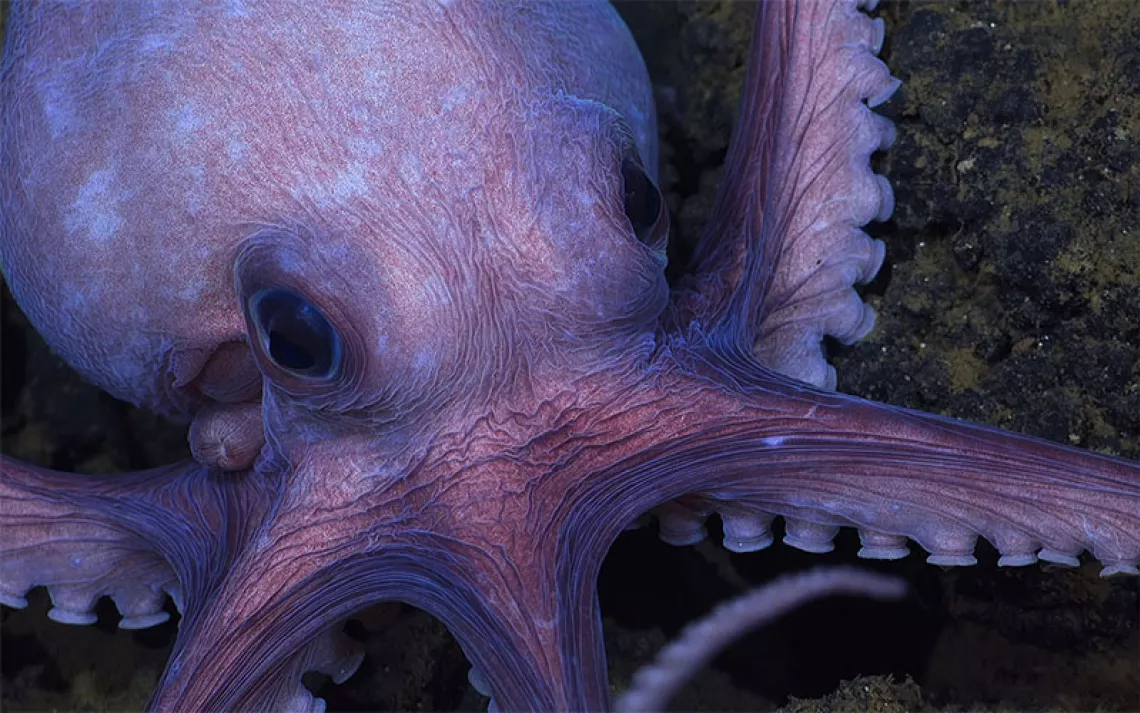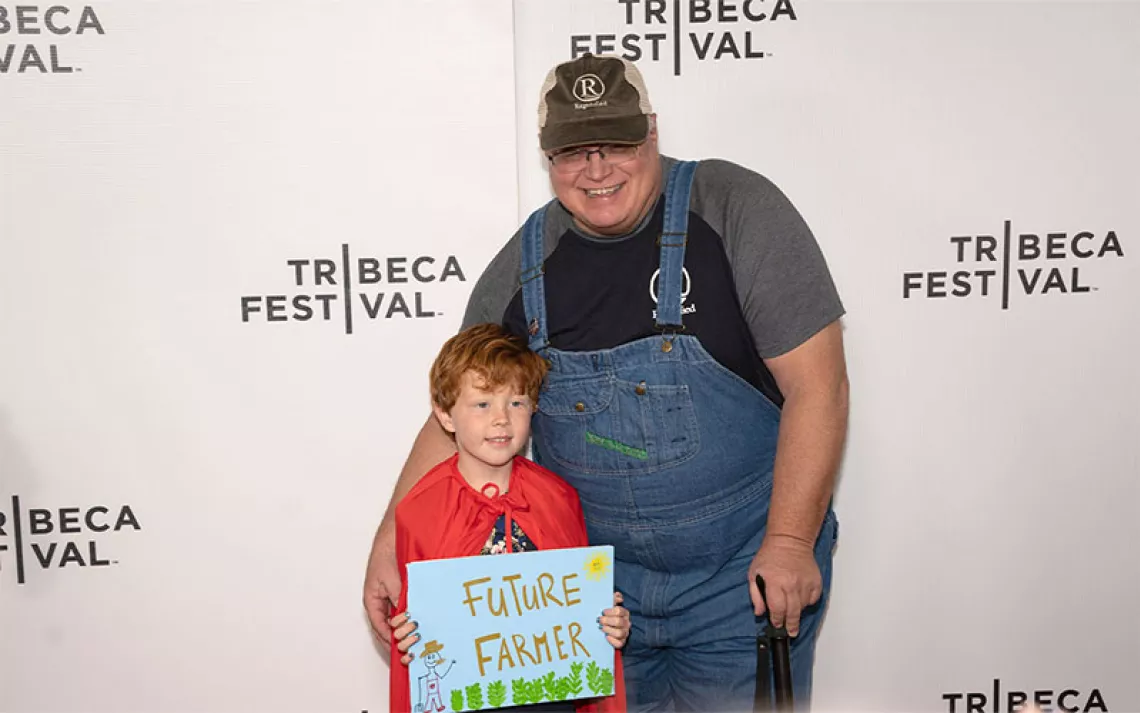Oscars So Green
Your environmental analysis of the 2018 Best Picture contenders
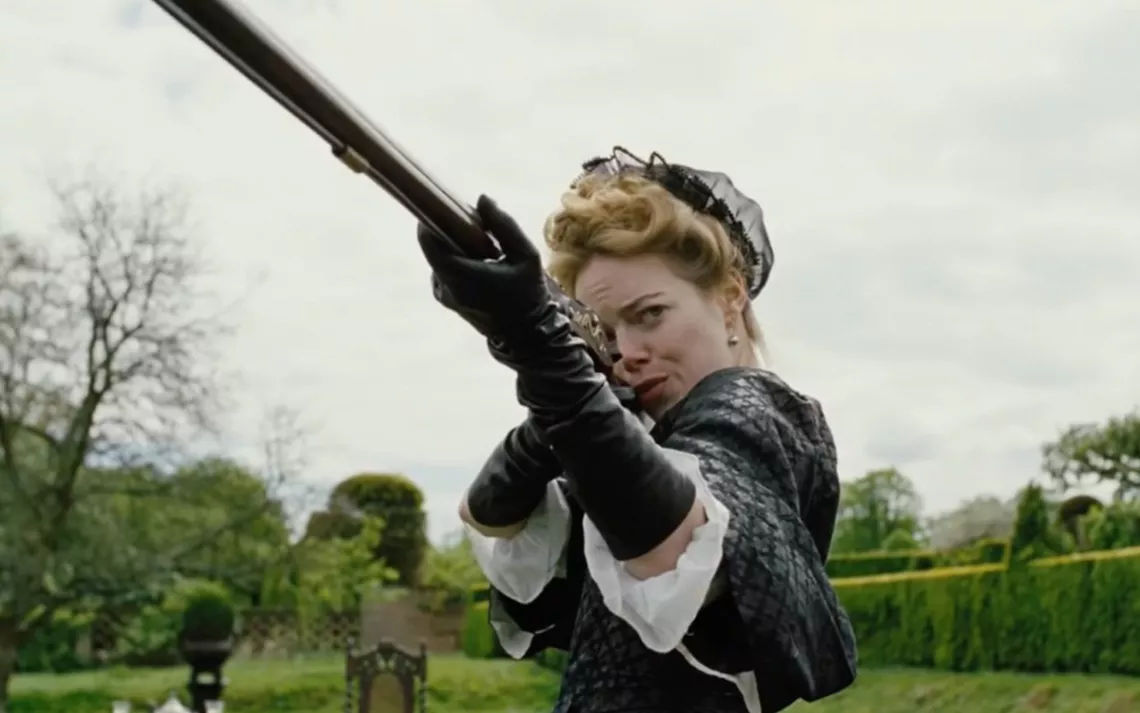
Photo courtesy of Fox Searchlight
The kind of movie that gets nominated for Best Picture at the Oscars often has stunning cinematography and sweeping vistas—in fact, it seems criminal that the mountains of Wyoming didn’t pull down a Best Supporting Actor nomination in Brokeback Mountain, and that the Atlantic Ocean failed to be recognized for its impeccable sloshing in Moonlight.
This year, the Best Picture nominees were often myopically human-focused—the year's strongest environmental contender, Leave No Trace, was snubbed for a Best Picture nomination . But nature has a way. From the wind power in A Star Is Born to the exceedingly fast duck in The Favorite, here’s our annual environmental guide to this year’s contenders.

A Star Is (Re)Born (this time with a wind farm in it)
Movie making is notoriously energy intensive, but at least Hollywood has no trouble recycling plotlines. A Star Is Born is a case in point, with different versions of the timeless tale dazzling audiences in 1937, 1954, 1976, and 2018. The sweeping love story between a charismatic but aging music star and a younger, talented-but-new-to-fame singer still shines in the fourth, most recent iteration directed by Bradley Cooper.
Jackson Maine (Bradley Cooper) meets Ally Campana (Lady Gaga) in a gay bar where she is performing in a drag show (he staggered in looking for booze), and Jack is captivated. He brings Ally on stage at one of his concerts, and then on tour, a move that catapults her to fame, even as his own fortunes fall.
Aside from being a love story, the film is also a deeply sympathetic portrait of someone in the grip of addiction. Jackson spends much of the film drunk and strung out, which doesn’t prevent him from displaying at times a heart-wrenching vulnerability as well as the mental clarity to utter sharp truths that ground Ally as she navigates her way through the perils of stardom.
I haven’t seen the previous three versions of the film, but I’m pretty sure that this newest one is the first to include a scene with a wind farm, and it's interesting to see how renewable energy factors, if only a little, into the plot. Jake takes Ally on his motorcycle to the Arizona farm where he grew up, only to discover that his brother has sold the property. His father’s gravestone is gone, replaced by towers of blandly whirling propellers, and Jackson proceeds to throw a furious tantrum in front of his brother, who is also his manager.
It’s only a brief episode, but it’s a subtle reminder that Jackson himself is becoming a relic, unable to adapt to changing times. Perhaps we can read into it a larger takeaway—as true when it comes to the health of the environment as for the music industry—that our inability to adapt to new realities, our addiction to how things are, will undo us in the end. (Wendy Becktold)
Should it win an Oscar? While soulful, the movie doesn’t quite rise to the level of Best Picture. But with seven nominations, it will probably go home with something.
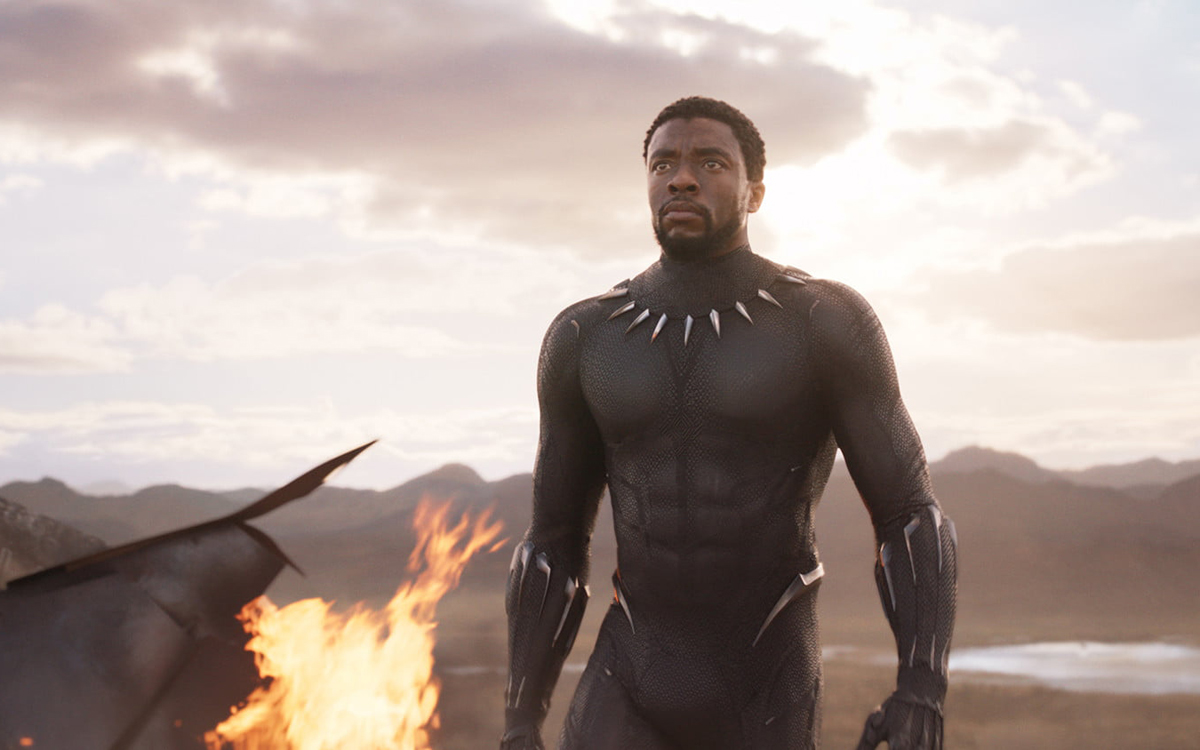
Black Panther
More than any other Marvel superhero film—or any superhero film, ever—Black Panther lays out some pure techno-environmental fantasy. Wakanda is like the coolest issue of 1950s-era Popular Mechanics that never actually existed. There are no suburbs in Wakanda—Golden City is surrounded by grasslands. There’s public transit in the form of futuristic high-speed maglev trains, but when it comes to building a fence around the paddock where the battle rhinos graze, Wakandans keep it green and low-tech, just weaving some branches together with rope. While it is never discussed in the movie, I feel very secure in assuming that Wakanda has a phenomenal composting program.
Wakanda’s look in the film was created by Hannah Beachler, the production designer for Moonlight, which won Best Picture in 2016. While the two movies look very different, nature plays a similar role in both—as a place of possibility, grounding, and rebirth. When Erik Killmonger enters a dream state brought on by the heart-shaped herb and he finds himself in his childhood apartment in Oakland instead of the baobab trees of Wakada, it shows more clearly than any dialogue could just how many possibilities his young self was cut off from. (Heather Smith)
Should it win an Oscar? If the Academy can give an Oscar to The Lord of the Rings, it can give one to Black Panther.
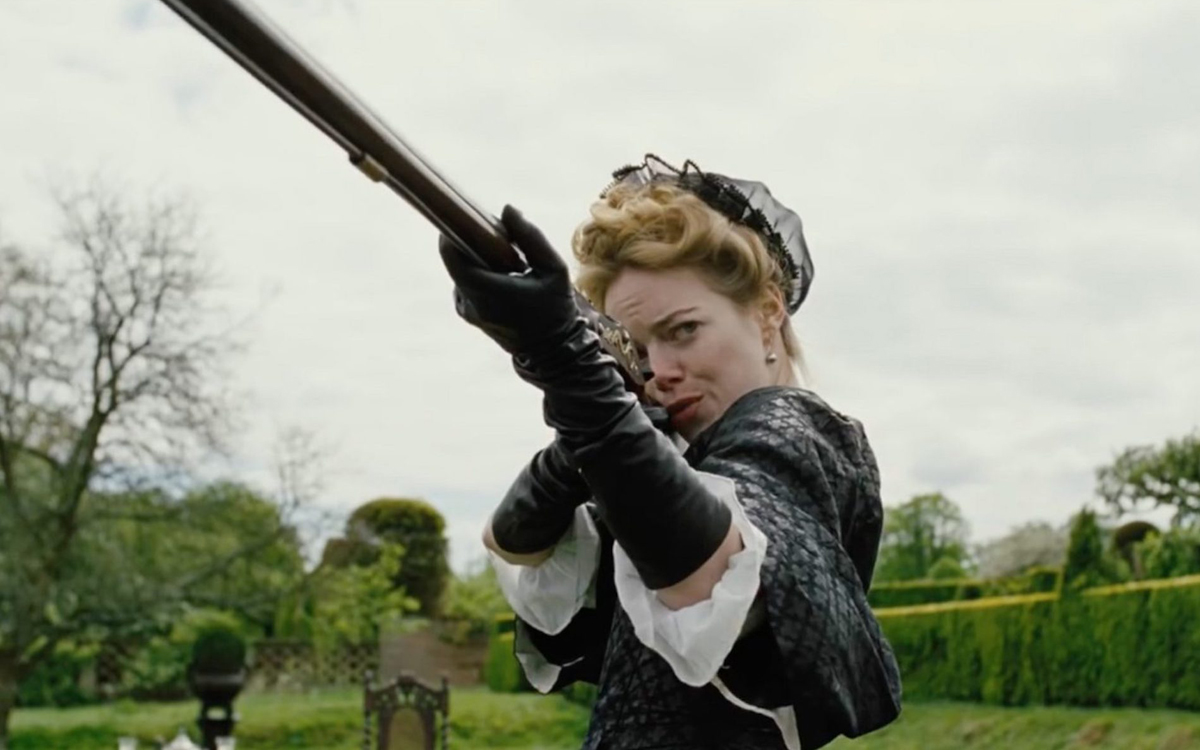
The Favorite
If there ever was an environmental argument against the aristocracy, it is The Favorite. Throughout the movie, animals exist solely to be raced against each other, shot for target practice, or hoarded as a substitute for miscarried and stillborn children. Compared to the histrionics and power plays of the humans around them, the animal characters that don’t get shot come off fairly well—the prize-racing duck could quite possibly be the most self-actualized character in the film. The movie’s last images belong to The Favorite’s animal characters, though what exactly is meant by that is something you will be arguing about long after the film is over.
That said, the human actors in The Favorite are superb. Devotees of family planning may also be heartened to see so many instances of non-procreative sex on the silver screen, even if most of it appears to be flagrantly coercive and not fun for anybody. (Heather Smith)
Should it win an Oscar? Tempting. Rachel Weisz, Olivia Colman, Emma Stone, and the duck are all extraordinary.
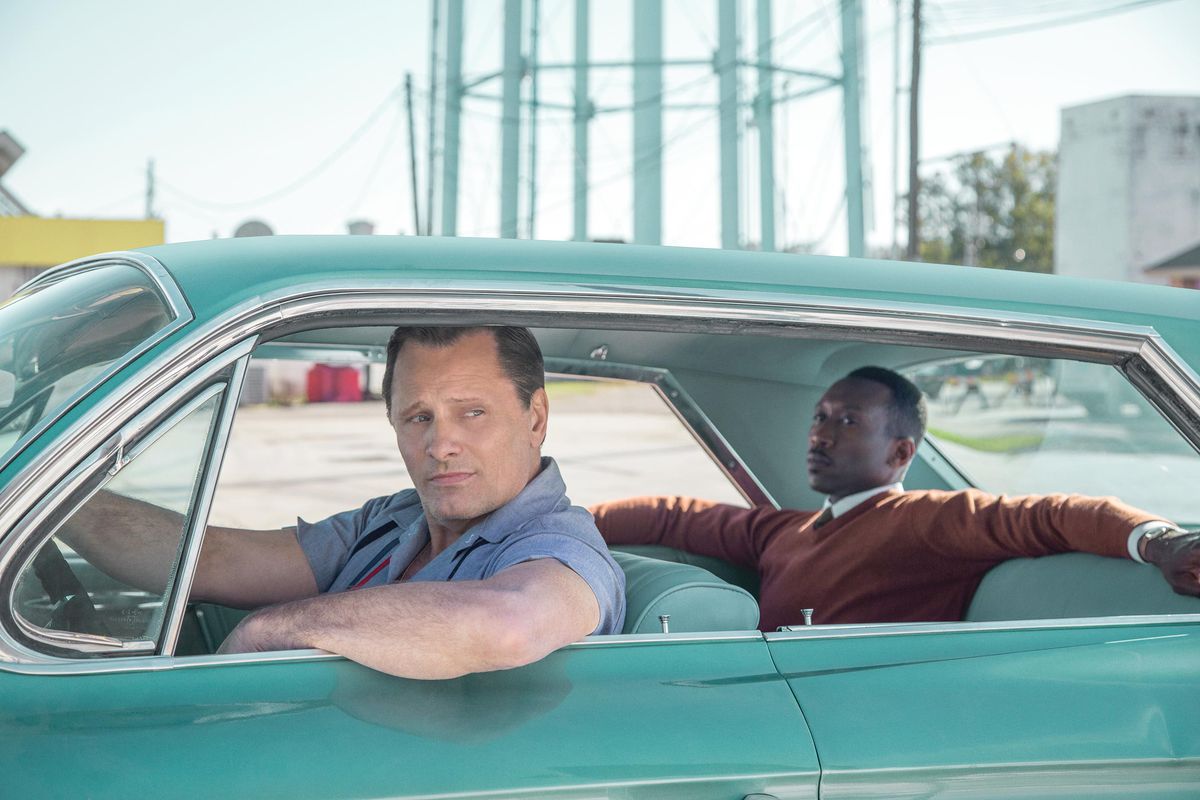
Green Book
The title of this movie is based on The Negro Motorist Green Book—a guidebook published from 1936 to 1966 that directed African American readers to hotels, restaurants, and businesses in the United States that black customers could safely visit. In the movie Green Book, Donald Shirley, an uptight, cosmopolitan concert pianist, hires Tony Vallelonga, a bouncer at the Copacabana in New York, to be his driver/fixer/personal security on a concert tour of the South.
The result will not be a surprise to anyone with a passing familiarity with the road-movie genre, where car travel creates unlikely friendships through enforced vehicular togetherness. As the tour progresses, Shirley becomes less uptight, Vallelonga becomes less of a racist schmuck, and the two join forces in the most well-worn road-movie pursuit in American cinema: getting the patriarch back to the nuclear family unit in time for holiday dinner.
The opening credits for Green Book say that the story is “inspired by a true friendship.” The script was written by Vallelonga’s son, based, he says, on interviews with both men before they died. But Shirley’s brother told the film site Shadow and Act that Green Book rewrote the Shirley they knew—tough, cosmopolitan, at home with his blackness and deeply engaged in the civil rights movement—into a more helpless and lonely stereotype that film critic Wesley Morris describes as “the ideal crowbar for closed white minds.” (Heather Smith)
Should it win an Oscar? Nah.
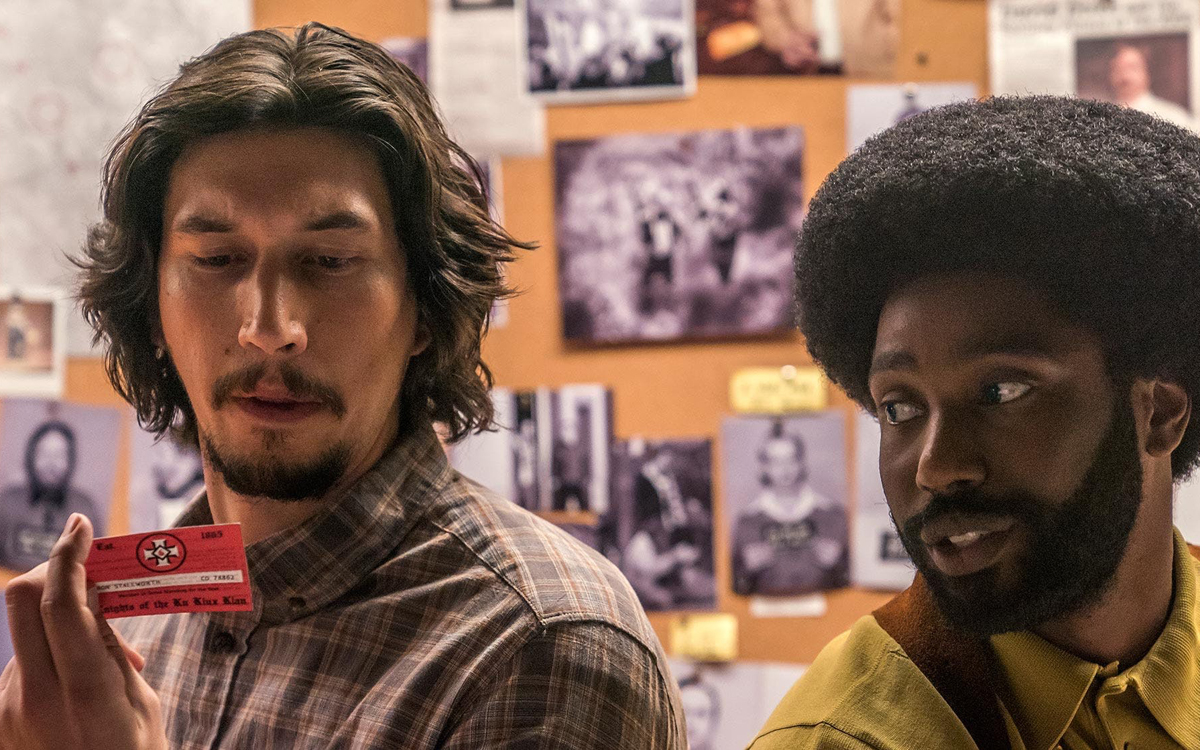
BlacKkKlansman
In the early 1970s, Ron Stallworth is hired as the first black police officer in the Colorado Springs police department. They want him to infiltrate a group of black college students at Colorado College, but then, on a whim, he calls a number in the back of the newspaper and joins a local branch of the KKK, accidentally giving his real name in the process.
Gradually, the story shifts from a buddy cop movie between Stallworth and the white police officer tasked with playing him during KKK meetings and into something less easy to categorize—something that is less about some not-super-bright 70s-era racists trying to infiltrate the power structures of Colorado Springs and more about the ways that white supremacists try to conceal their intentions under a smooth, bland, media-friendly facade until they are quite sure that they are attacking someone who is not in a position to fight back. (Heather Smith)
Should it win an Oscar? This isn’t the first time that Spike Lee has directed a Trojan horse disguised as a genre film. Do the Right Thing felt like a sitcom, until it wasn’t, but then, the transition from one state to another was as seamless as it was unsettling. In this case, the plot twists feel grafted on.
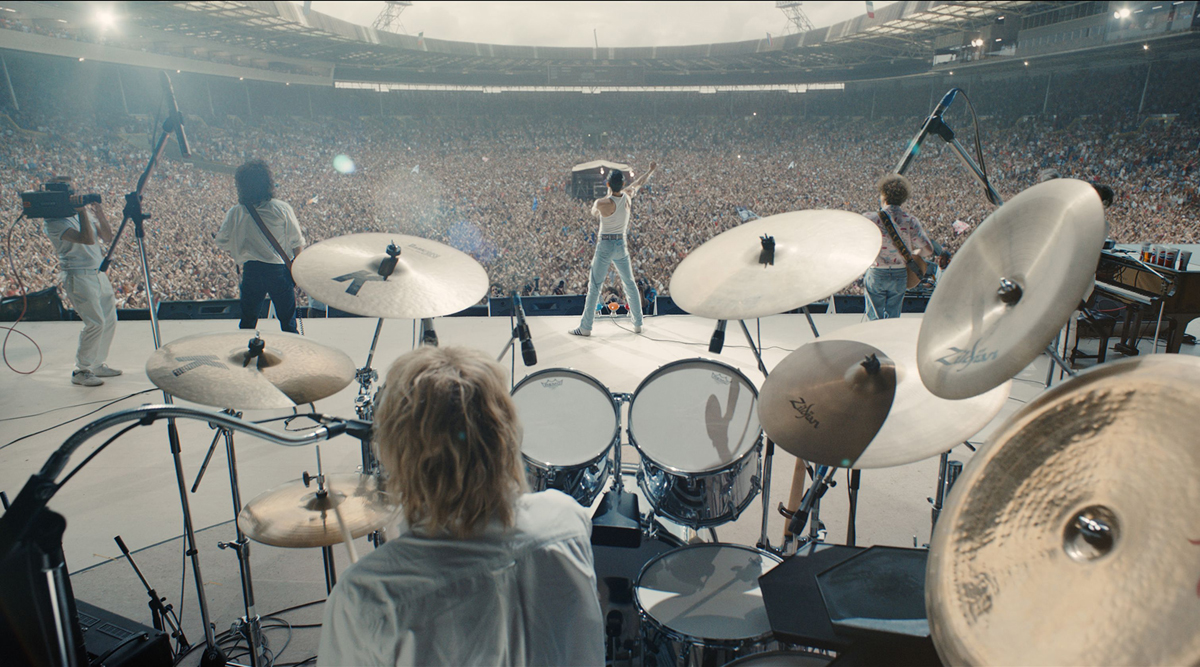
Bohemian Rhapsody
Is this the real life? Or is this just fantasy? Now that we’ve entered the Anthropocene, we’re all more likely to be caught in a landslide—and there’s certainly no escape from ever-grimmer-looking climatic reality. Up for five nominations, the biopic tribute to the British rock band Queen may not contain such overt environmental motifs.
However, by shining new light on 1985’s historic, global Live Aid fundraiser concert through its extended karaoke-fest/historical re-creation of a finale scene, the film caused this particular viewer to reflect on Live Aid’s cause—Ethiopian famine—and how global warming has since thrown a complicating wrench into issues of world hunger. With Earth’s population projected to explode from 7.7 billion to almost 10 billion by 2050, the demand for food is ramping up as climate change expands deserts and exacerbates droughts in the developing world. So perhaps we need something of a more eco-focused Live Aid 2.0 (not to mention more climate-friendly, biodiversity-promoting agricultural advances)? I digress.
At heart, Bohemian Rhapsody is a film about dismissing the naysayers and embracing an exciting new modus operandi. After Queen produces the eponymous six-minute-long operatic rock song, viewers witness music executives’ great displeasure: “Bohemian Rhapsody” isn’t radio-friendly, it doesn’t make sense, it bucks pop-music norms—and thus proves itself abundantly analogous to our transforming energy sector.
After all, renewable solar and wind projects at first seemed far-fetched, flamboyant—nothing that could stand up to trusty fossil fuels. The corpulent white men in charge, much like the original Queen execs, eschewed it. But, “Bohemian Rhapsody” went on to become a smash hit (and renewables have clearly moved beyond the hippie fringe and into the pragmatic mainstream).
Just as Queen challenged norms and ushered in new styles, icons, and sounds, today’s US environmentalists are challenging the federal government to transition away from coal and achieve net-zero greenhouse gas emissions—the idea being that we need to save our future selves from our past selves. Indeed, if the Green New Deal had a theme song, perhaps it should be "We Will Rock You." (Katie O’Reilly)
Should it win an Oscar? Not for Best Picture. Actor Rami Malek’s portrayal of lead singer Freddie Mercury is electrifying, but this film has come under some (warranted) fire for stigmatizing Mercury’s homosexuality. The legacy of this film is likely one of “it’ll be fun to attend your local theater’s singalong” proportions.
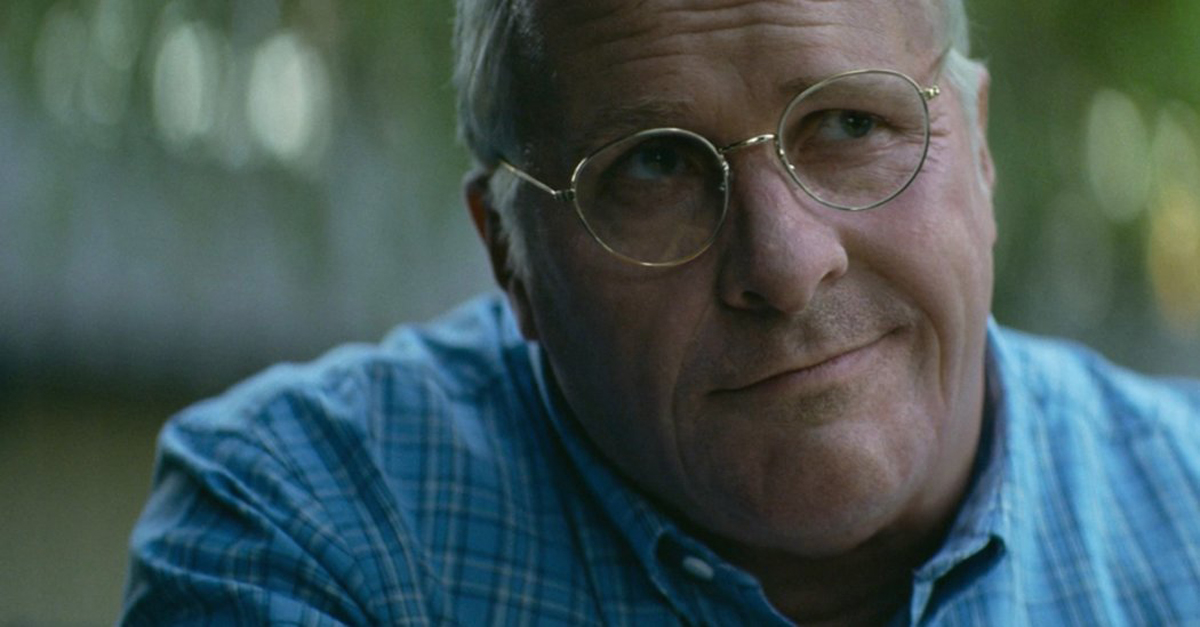
Vice
Up for eight awards, this movie harkens back to people and events from an era perhaps only slightly less immediately disturbing than our present: the Bush years. Is everything wrong about the world today—at least, the parts that involve energy dominion, unchecked power, and industry cronyism—Dick Cheney’s fault? Maybe not, but this biopic compellingly makes the case that after Reagan, the American right relied on shrewd consolidation of power, and thus set—or at least fixed—our planet on its present path to ruin, and that no single figure better illustrates all this than our 46th vice president.
An anti-hero’s antagonist, Dick Cheney is portrayed by a deftly-dismantling-checks-on-executive-power Christian Bale. As viewers learn, his career in national politics began in the Nixon administration, when he was a congressional intern turned acolyte of Donald Rumsfeld. As he rose in rank, he helped along fellow planet-destroying figures like Fox News founder Roger Ailes, the mega-donor Koch brothers, and of course, President George W. Bush.
To counter all the resulting damage, Vice director and writer Adam McKay told The New York Times, capitalism must come under greater regulatory control, “especially if we’re going to do anything about climate change.” Compared to Trump, he says, “There’s no question that Bush and Cheney are way ahead of him in terms of damage done.”
Vice makes for an eye-opening reflection on our current reality, and provides some food for thought about how we might possibly reset our climatic course. And hey, there’s something in there for nature lovers too: The film’s most humanizing moments depict Cheney fly-fishing in his native Wyoming. (Katie O’Reilly)
Should it win an Oscar? Yes! The political climate can—and should—sway Academy voters. And of the Best Picture contenders, this film is most like our current reality: grotesque, sometimes hilarious, and deeply polarizing.
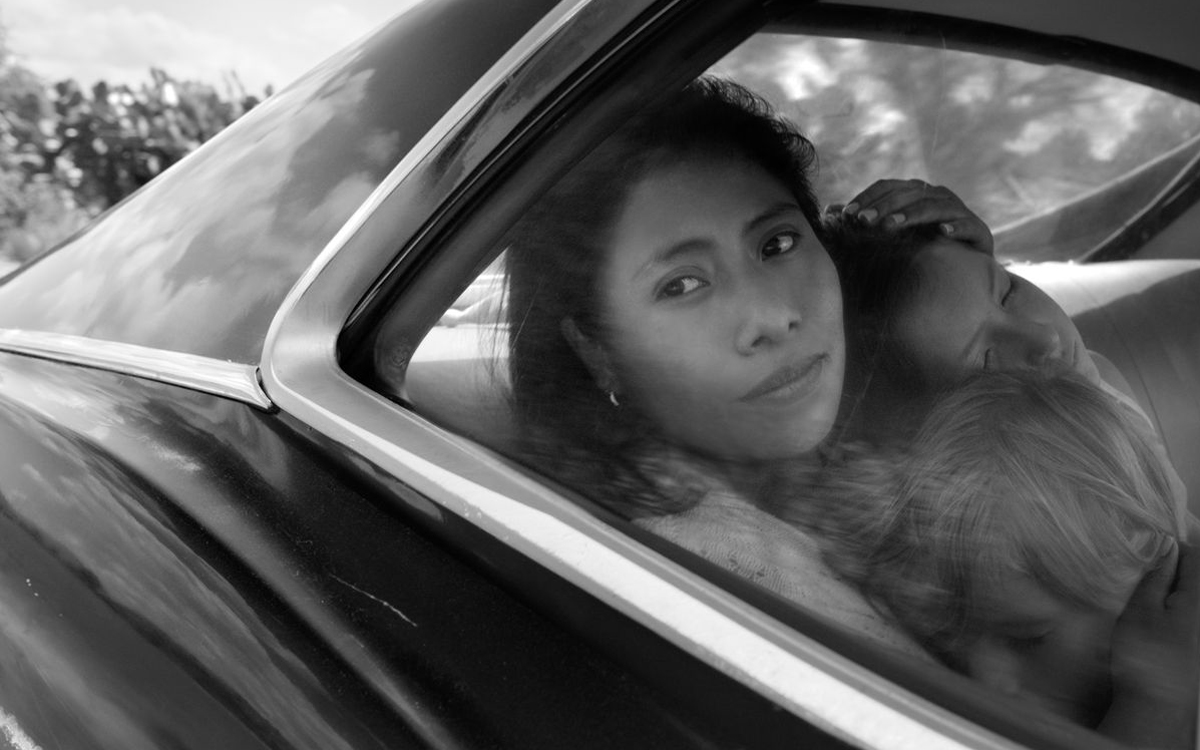
Roma
Out of all the Best Picture nominees this year, Roma is the nominee that really looks like one. The takes are long. The landscape is gorgeous. Certain moments—partygoers setting off fireworks in the dark countryside, a paramilitary group doing drills on a hillside, a long, silvery tracking shot of the ocean—stick with you like dreams. But for the most part, the film’s main character, Cleo, played by Yalitza Aparicio, is limited to the narrow domestic space of a single home in Mexico City’s Roma neighborhood: scrubbing the floors, doing the laundry, scraping dog shit off the pavement, hosing down the courtyard, waking the children in the morning, cooking dinner, putting the children to bed at night.
There’s an uneasy tension throughout the movie—the film’s director, Alfonso Cuarón, clearly adores Cleo, who is based on his memories of and interviews with Liboria Rodríguez, an Indigenous Mixtec woman from Oaxaca who began working for his family when he was nine months old and who appears to have basically raised him.
But Cuarón is too good of a director not to also show the unfairness of Cleo’s situation—the way that her world is limited by racism and poverty. The sheer expansiveness of the world of the film only throws into relief how constrained Cleo’s life is. (Heather Smith)
Should it win an Oscar? This film out-Oscars all the Oscar contenders and then some.
 The Magazine of The Sierra Club
The Magazine of The Sierra Club
